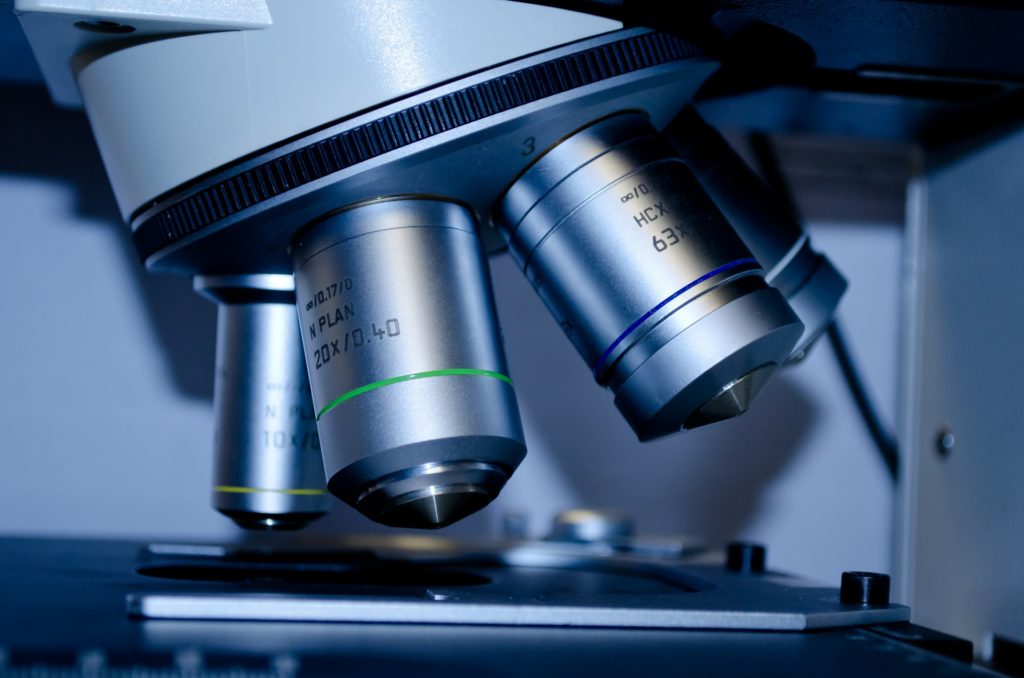What is Cannabigerol (CBG)? Why is it the ‘parent’ molecule of both CBD and THC? What are the medical benefits of CBG?
Everyone has heard about CBD and THC. However, there is another molecule, the “parent” molecule that is fast becoming known. Cannabigerol (CBG) is the first cannabinoid produced by the cannabis plant. CBG starts off as cannabigerolic acid (CBGa), and when exposed to heat or UV light, is transformed into CBG. CBG is the “parent” of CBD and THC, and as such, the medical benefits of CBG are a blend of-sorts of the two, but without any of the psychoactive effects of THC.
How does CBG work?
CBG stimulates the alpha-2 receptor. This is the biochemical reason why CBG is capable of decreasing stress, decreasing anger, improving hypertension, improving working memory, improving executive function (by its activity in the prefrontal cortex), acting as an effective analgesic, and effectively treating opioid dependence and alcohol withdrawal symptoms.
CBG blocks the 5HT1A receptor. Blocking the 5HT1A receptor has been shown to improve learning and memory in rodents. As a result, CBG is now being studied as a novel treatment for Alzheimer’s disease. Activation of the 5-HT1A receptor has also been found to inhibit penile erection, thus CBG, which blocks the 5HT1A receptor may be able to improve penile erection.
CBG has negligible activity at the CB1 receptor, but stimulates the CB2 receptor, therefore, CBG offers many of the same benefits of THC but without the “high” that are caused by CB1 receptor stimulation.
CBG inhibits the reuptake of anandamide. Consequently, CBG allows anandamide, the “bliss hormone”, that our body produces, to last longer.
CBG inhibits TRPM8. As a result, CBG can decrease the sensation of cold-induced pain.
Learn more about medical cannabis
Subscribe to our weekly newsletter
What are the medical benefits of CBG?

Medical Benefits of CBG – The Best Of Both Worlds
The medical benefits of CBG are plenty. CBG can be used to treat inflammatory bowel disease. In the research done to prove this, mouse models of colitis were tested. Colitis was induced, and intestinal inflammation was assessed. CBG was then given which caused decreased production of nitric oxide. (Nitric oxide causes inflammation.) As a result of administering CBG, the inflammation in the lining of the intestine was reduced and the inflammatory bowel disease improved.
CBG is neuroprotective, which means, it protects and preserves the nerves of the brain from injury, disease, and degeneration. In the research done to prove this, mouse models were given agents that caused the same nerve damage as seen in Huntington’s disease. After CBG was given, the nerve damage slowed down and further deterioration was prevented. Examples of diseases that require neuroprotection are Alzheimer’s disease, Parkinson’s disease, multiple sclerosis, stroke patients, and Huntington’s disease.
CBG, along with the other major cannabinoids can treat a resistant bacteria called “MRSA,” methicillin resistant staphylococcal aureus. This is an infection that can be deadly because this particular bacteria is resistant to most antibiotics.
CBG can be used to treat the loss of appetite seen in patients undergoing chemotherapy. In the research done to prove this, rats were given CBG. The rats were then observed and what was found was that although the rats did not eat more at each sitting, they ate more frequently. This suggests that CBG may be ideal for cancer patients undergoing chemotherapy, as these patients, because they are nauseous, cannot tolerate food. The only other cannabinoid that can do this is THC. However, if you want to avoid the “high “from THC, you can get the same benefit from CBG – without the psychoactive effects.
CBG works as an antidepressant. In the research done to prove this, mouse brain membranes were given CBG. CBG stimulated alpha-2 receptors and blocked 5-HT1A receptors. When the studies were repeated in lab rats, the clinical result was a decrease in anxiety and improvement of the symptoms of depression.
CBG has been found to have better pain-relieving properties than THC. The reason is because of where in the cell CBG exerts its effect. CBD has negligible activity at the CB1 receptor, however it stimulates the CB2 receptor and inhibits the TRPM8 receptor. As a result, CBG reduces pain. However, in addition, CBG is an alpha-2 agonist and 5HT1A antagonist. By simulating the alpha-2 receptor and inhibiting the 5HT1A receptor, there is a synergistic benefit. Pain, which is a blend of emotions and physical symptoms is most effectively treated when there is dual receptor stimulation, which is seen when both the alpha-2 receptor is activated and the 5HT1A receptor is inhibited.
CBG has greater GABA uptake inhibition than CBD or THC, suggesting that it can be used as a muscle relaxant in spasticity, as seen for example in muscular sclerosis, chronic low back pain, and sports injuries.
CBG inhibits keratinocyte proliferation, and as a result, when used topically, CBG can successfully treat psoriasis.
Medical benefits of CBG – Human studies
No clinical research as of yet has been conducted on humans. Research is limited to studies in vitro and studies on rodents. However, the research performed has shown robust results, and together with multiple anecdotal reports from people who have taken cannabis extracts, suggest that the positive results seen in vitro and in mouse studies, can be extrapolated to humans.
Legal status
Cannabigerol is not scheduled by the UN Convention on Psychotropic Substances. In the United States, it is not a controlled substance under the Controlled Substances Act unless it is produced from parts of the cannabis plant that are scheduled.
The medical benefits of CBG – Conclusion
CBG is safe. It has no psychoactive effects, no toxic dose, no withdrawal effects, and there is no risk of addiction. CBG is safe in children, pets, the elderly, and in those with a history of psychosis or schizophrenia.
CBG is in its infancy insofar as research goes. However, it has already been shown that the medical benefits and uses of CBG are similar, if not superior to both CBD and THC. When it comes to treating pain and muscle spasm, research has already shown that CBG is more effective than both CBD and THC.
It seams that the medical benefits of CBG offers humanity the best of both worlds…
References:

Medical benefits of CBG – Resources
“The role of 5HT1A receptors in learning and memory.” Behavioral Brain Research (2008) 195 (1):54-77
“5HT1A receptor agonists prevent in rats the yawning and penile erections induced by direct dopamine agonists.” Psychopharmacology (1992) 108 (1-2): 47-50
“Neuroprotective properties of cannabigerol in Huntington’s disease: studies in R6/2 mice and 3-nitropropionate-lesioned mice.” Neurotherapeutics. 2015 Jan;12(1):185-99.
“Cannabigerol Action at Cannabinoid CB1 and CB2Receptors and at CB1–CB2 Heteroreceptor Complexes.” Front. Pharmacol., 21 June 2018
“Colon carcinogenesis is inhibited by the TRPM8 antagonist cannabigerol, a Cannabis-derived non-psychotropic cannabinoid.” Carcinogenesis. 2014 Dec;35(12):2787-97
“Antibacterial cannabinoids from Cannabis sativa: a structure-activity study.” J Nat Prod. 2008 Aug;71(8):1427-30.
“Cannabigerol is a novel, well-tolerated appetite stimulant in pre-satiated rats.” Psychopharmacology (Berl). 2016 Oct;233(19-20):3603-13.
“Cannabinoids: influence on neurotransmitter uptake in rat brain synaptosomes.” J Pharmacol Exp Ther (1975). 194: 74–81.
“Cannabinoids: the separation of central from peripheral effects on a structural basis.” Planta Med (1991). 57: S60–S67
“The inheritance of chemical phenotype in Cannabis sativa L. (II): cannabigerol predominant plants.” Euphytica (2005) 145: 189–198.
“Effects of cannabinoids and cannabinoid-enriched Cannabis extracts on TRP channels and endocannabinoid metabolic enzymes.” (2011) Br J Pharmacol
“Antitumor activity of plant cannabinoids with emphasis on the effect of cannabidiol on human breast carcinoma. “ J Pharmacol Exp Ther (2006) 318: 1375–1387
“A cannabigerol extract alters behavioral despair in an animal model of depression.” Proceedings June 2006; Symposium on the Cannabinoids. International Cannabinoid Research Society: Tihany, p. 32.
“Evidence that the plant cannabinoid cannabigerol is a highly potent α2-adrenoceptor agonist and moderately potent 5HT1A receptor antagonist,” Br J Pharmacol. 2010 Jan; 159(1): 129–141.
“Potentiation of fluoxetine-induced penile erections by combined blockade of 5HT1A and 5HT1B receptors.” European Journal of Pharmacology (1997) 321 (3) R11-3
“The Use of Cannabinoids in Colitis: A Systematic Review and Meta-Analysis.” Inflammatory Bowel Diseases (2018) 24 (4): 680-697
“Neuroprotective Properties of Cannabigerol in Huntington’s Disease: Studies in R6/2 Mice and 3-Nitropropionate-lesioned Mice” Neurotherapeutics. (2014) 12 (1): 185–199
“Beneficial effect of the non-psychotropic plant cannabinoid cannabigerol on experimental inflammatory bowel disease.” Biochemical Pharmacology (2013) 85 (9) 1306-16
“A cannabigerol quinone alleviates neuroinflammation in a chronic model of multiple sclerosis”. Journal of Neuroimmune Pharmacology. (2012) 7 (4): 1002–16.
“Cannabinoids Modulate Neuronal Activity and Cancer by CB1 and CB2 Receptor-Independent Mechanisms”. Frontiers in Pharmacology. (2017). 8: 720.
“Beneficial effect of the non-psychotropic plant cannabinoid cannabigerol on experimental inflammatory bowel disease.” Biochem Pharmacol. 2013 May 1;85(9):1306-16.
USC>Title 21>Chapter 13 > Subchapter I > Part A > 802. Definitions. (16) PDF. Government Publishing Office – US Code. 2016









